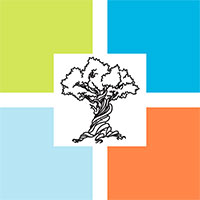Resources for the Family Caregiver
Contact: |
Davis Allen, Owner |
 |
What is a Companion Caregiver and Why Should a Family Care?
There are many qualities that go into being a good caregiver. Some caregivers are sitters or observers and others are companions. In today’s environment of home health caregivers, most are home health aides with some medical training. Their inclination is toward the medical considerations of the patient. A good companion caregiver can be your parent’s friend as well as monitoring health changes.
How are caregiver companions different from medically trained caregivers? They focus on providing social and lifestyle interactions. Keeping the social engagement of someone who may be experiencing losses in health, mental acuity, partners, friends and lifestyle is the key to maintaining the overall well-being of the person. Companions help in heading off depression and loneliness. They can observe changes in brain function, physical functioning or reactions from medications. They can report on changes of mood or emotional state.
What qualities make a good companion caregiver? Having the ability to interact while keeping the focus on the person for whom they are caring and not on themselves is an important quality. They are able to engage the client in conversation about their life and suggest activities in which the client might want to participate. Companions are great at listening and staying present to the person. They are not just involved in care, they are also able to anticipate the client’s needs and provide activities that stimulate their cognitive, visual and auditory senses. Companion caregivers keep the elder stimulated socially to increase well-being and engagement in life. They act as a direct liaison with the family to keep them aware of changes in their loved one’s status.
What kinds of services do companion caregivers offer? They help in maintaining personal hygiene including bathing and dressing. They provide transportation so the client may go to the grocery store, drug store, doctor’s office and other routine activities of normal life. They listen, converse and may read aloud to the client. They will plan music for listening, participate in gardening activities or an outing around town. They may accompany the client on their daily walk or help with transferring. Companion caregivers are the eyes and ears for the family who coordinate care for the patient during doctor visits and report back on what support their loved one needs. They assist in managing their client’s resources and perform light housekeeping and meal preparation. Periodically, they will reassess the client’s condition and reevaluate the Care Plan for the person.
How can you find these exceptional companions? Age at HomeCare provides the screening through rigorous multi-step interviewing and background checks. They look for exceptional caregivers who are a cut above the rest. Through the registry model they are using, Age at HomeCare acts as the agent to screen and monitor the caregiver. Since there are minimal overhead costs borne by the referring registry, the client pays no more than the standard hourly rate and the caregiver is able to earn more money -- a win-win for both caregiver and client. The higher earnings attract a higher quality of caregiver as well as male caregivers. Clients and their families have a direct relationship with the companion caregiver who acts as a partner in solving the complex issues families face.
Age at HomeCare is owned and managed by Davis Allen, former Exec. Dir. of SarahCare Adult Day Center. He has an MA in Human Resource Development and is a Certified Nurse Assistant. He continues to work as a companion caregiver with his own clients. All of his associates have previous direct care experience so they are more attuned to the needs of their clients and families.
© Age at Home Care
